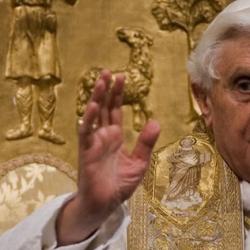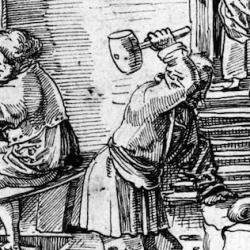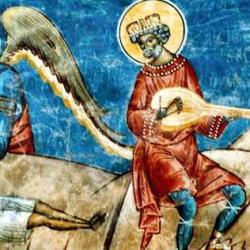Worship, Joseph Ratzinger (Benedict XVI) says, orders everything in human life:
“It is only . . . when man’s relationship with God is right that all of his other relationships . . . can be in good order . . . . Worship . . . is essential for the right kind of human existence in the world. It is so precisely because it reaches beyond everyday life. Worship gives us a share in heaven’s mode of existence, in the world of God, and allows light to fall from that divine world into ours. In this sense worship . . . has the character of anticipation. It lays hold in advance of a more perfect life and, in so doing, gives our present life its proper measure. A life without such anticipation, a life no longer opened up to heaven, would be empty, a leaden life.”
In the Eucharist, each worshiper is united to Christ, and, as the members are all united to the same head, they are united to one another: “the Eucharist is understood in the full intimacy of the union of each individual with the Lord that it automatically becomes also a social sacrament in the highest degree.” And this social sacrament is a standard against which the agendas of modern societies may be measured.
He sees a quite direct relationship between the failure of worship and the triumph of technolog over human life: [Man] has investigated the farthest recesses of his being, he has deciphered the components of the human being, and now he is able, so to speak, to ‘construct’ man on his own. This means that man enters the world, no longer as a gift of the Creator, but as the product of our activity. . . . In this way, the splendor of the fact that he is the image of God—the source of his dignity and of his inviolability—no longer shines upon this man . . . . Man is nothing more now than the image of man—but of what man? . . . Moral strength . . . has diminished, because the technological mentality confines morality to the subjective sphere. Our need, however, is for a public morality . . . . The true and gravest danger of the present moment is precisely this imbalance between technological possibilities and moral energy.”
Only when we worship God can we acknowledge life and human existence as gift. And only this acknowledgement deters us from attempting to re-construct human existence.
(Quotations taken from Thomas Rourke, “Fundamental Politics: What We Must Learn from the Social Thought of Benedict XVI,” Communio 35 [2008]).












